Struggling with Halal compliance? Get fast, accurate HALAL certification in Saudi Arabia with expert guidance you can trust.
Saudi Arabia is entering a new regulatory phase where Halal compliance is no longer a symbolic requirement—it is a business survival metric. Under Vision 2030, SFDA, GCC Standardization authorities, and major retail chains have tightened expectations around ingredient origins, ethical production, documentation transparency, and supply chain accountability. For this reason, demand for HALAL certification in Saudi Arabia has risen sharply across food manufacturers, restaurant chains, cosmetic brands, nutraceutical companies, warehouses, logistics operators, and exporters. Today, Halal certification is a strategic license to operate, not a ceremonial approval. And as these expectations rise, businesses are increasingly turning to expert partners such as B2Bcert — a leading HALAL consultants in Saudi Arabia for structured, audit-ready certification support.
Saudi Arabia’s consumer market has become one of the most brand-aware and compliance-sensitive markets in the GCC. Business owners that once relied on basic documentation are now required to present evidence-based Halal assurance throughout the production and supply chain cycle.
The shift is happening because of:
These changes mean businesses cannot delay their HALAL registration in Saudi Arabia or rely on minimal documentation. They must implement a structured system aligned with GSO 2055-1, GSO 993, and recognized Halal accreditation bodies.
Halal compliance in today’s Saudi market is not difficult because of religion—it’s difficult because of documentation, traceability, and ingredient complexity. Many business owners assume they are “Halal by default,” but SFDA auditors think differently.
The most common challenges include:
Every one of these challenges is solvable, but only through a structured Halal system—this is where B2Bcert’s HALAL consulting in Saudi Arabia becomes crucial.
Unlike template-based consultants who offer generic documentation, B2Bcert works as a strategic compliance partner. Every business we support undergoes a tailored process based on its category—restaurant, factory, cosmetics lab, warehouse, importer, or exporter.
B2Bcert’s Halal consulting approach includes:
This makes B2Bcert one of the most trusted HALAL certification companies in Saudi Arabia for SMEs and enterprise-level clients.
The certification process is structured for clarity but requires accuracy and completeness.
The stages include:
Businesses supported by B2Bcert typically achieve certification faster because they avoid re-audits and non-conformity delays.
Business owners often ask why pricing varies.
The HALAL certification cost in Saudi Arabia depends on:
B2Bcert offers transparent pricing and ensures clients avoid unnecessary expenses due to failed audits or missing documents.
Saudi Arabia’s Halal landscape is set to evolve significantly. Businesses preparing early will gain an advantage.
Key upcoming changes include:
These trends show why companies must invest in proper HALAL services in Saudi Arabia today and not wait for regulatory deadlines.
Because Saudi businesses need more than a certificate—they need a system that protects them during inspections, renewals, and supplier audits.
B2Bcert provides:
This makes us one of the most preferred HALAL consultants in Saudi Arabia among manufacturers, restaurants, brand owners, and exporters.
Halal certification is usually issued by Islamic certification bodies or halal certifying agencies in Saudi Arabia. These organizations are typically responsible for ensuring that the products, services, and facilities comply with Islamic dietary laws and are suitable for consumption by Muslims.
HALAL Certification application, allowing the software and an auditor to evaluate the procedure document. If the auditor concurs that will help you with the filing and registration process and give you the Certification, then get the certification.
Halal Certification Cost is definitely not a decent sum. It will shift from Registration, Implementation, Audit, documentation, mindfulness preparing and different elements.
It’s important to note that the halal certification procedure may vary depending on the halal certification body and the specific requirements for the product and manufacturing process.
Halal assures the confidence and trustworthiness of the data generated. Contact Top 10 Halal Consultants in Saudi Arabia to get more information on Halal Certification.
Pharmaceuticals, F&B Manufacturers, FMCG Manufacturers, Animal feed manufacturers, Traders & Merchants, Logistics, Packaging materials, Air Catering, Family-Friendly Tourism, Family-Friendly Medical Tourism.
Access to halal markets, Meeting the needs of Muslim consumers, Enhancing product quality and safety, Building trust and credibility, Improving brand image and reputation, Compliance with international standards, Competitive advantage.





















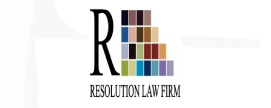

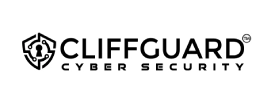


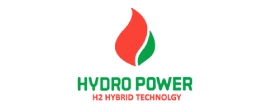

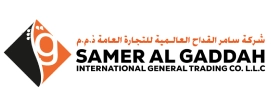



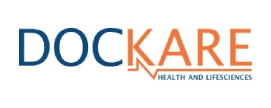

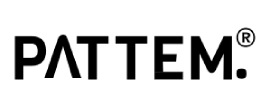


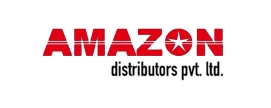

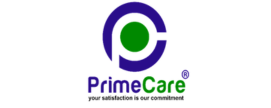










B2BCERT is a Solutions & Service organization, specialized in management consulting, Trainings, Assessments, Certification & Managed Services
MOST SEARCHED ON B2BCERT: ISO 9001 Certification | CE Certification | ISO 22000 Certification | NEMA Certification | ISO 27701 Certification | ISO 27032 Certification | ISO 22483 Certification | REACH Certification | ISO 22301 Certification | ISO 42001 Certification | ISO 41001 Certification | ISO 21001 Certification | ISO 15189 Certification | GMP Certification | GDPR Certification | GDP Certification | GLP Certification | HIPAA Certification | PCI DSS Certification | SOC 1 Certification | KOSHER Certification | NEMA Certification | Certificate of Conformity | GACP Certification | FSSC 22000 Certification | OHSAS 18001 Certification | HACCP Certification | SA 8000 Certification | SOC 2 Certification | VAPT Certification | ROHS Certification | BIFMA Certification | FCC Certification | HALAL Certification
ISO CERTIFICATIONS: ISO 9001 Certification | ISO 14001 Certification | ISO 45001 Certification | ISO 22000 Certification | ISO 27001 Certification | ISO 13485 Certification | ISO 17025 Certification | ISO 27701 Certification | ISO 20000-1 Certification | ISO 27032 Certification | ISO 22483 Certification | ISO 26000 Certification | ISO 22301 Certification | ISO 42001 Certification | ISO 27017 Certification | ISO 27018 Certification | ISO 50001 Certification | ISO 27014 Certification | ISO 29990 Certification | ISO 37001 Certification | ISO 41001 Certification | ISO 21001 Certification | ISO 55001 Certification | ISO 28000 Certification | ISO 22716 Certification | ISO 15189 Certification | ISO 41001 Certification
PRODUCT CERTIFICATIONS: FSSC 22000 Certification | OHSAS 18001 Certification | HACCP Certification | SA 8000 Certification | GMP Certification | GDPR Certification | GDP Certification | GLP Certification | HIPAA Certification | PCI DSS Certification | SOC 1 Certification | SOC 2 Certification | VAPT Certification | CE Certification | ROHS Certification | BIFMA Certification | FCC Certification | HALAL Certification | KOSHER Certification | NEMA Certification | REACH Certification | Certificate of Conformity | GHP Certification | Free Sale Certification | FDA Certification | GACP Certification
WHAT IS B2BCERT: B2BCERT is one of the leading service providers for International recognized standards and Management solutions for Business development, process Improvement, Consulting & Certification services for various International Standards like ISO 9001, ISO 14001, ISO 45001, ISO 22000, ISO 27001, ISO 20000, CE Marking, HACCP & many more. B2BCERT works on the values of trust, fairness & genuine respect for our customers, employees, and business partners.B2BCERT provides internationally recognized standards and management solutions, specializing in ISO and related certification services. Headquartered in Bangalore, India, we have a global presence in the Middle East and Africa. Our team of 30+ professionals ensures tailored solutions by partnering with leading certification firms.
B2BCERT Serves In: India | Nepal | Singapore | Afghanistan | Philippines | Malaysia | Jordan | Turkey | Sri Lanka | Saudi Arabia | Oman | UAE | Kuwait | Yemen | Qatar | Lebanon | Iran | Iraq | Bahrain | South Africa | Egypt | Nigeria | Kenya | Ghana | Tanzania | Zimbabwe | Cameroon | Uganda | USA | UK | Germany | Australia | New Zealand | Canada | Italy | Botswana | Brunei | Cambodia |
Service providing Sectors: Information Security | Manufacturing | Software Companies | Pharmaceuticals | Architecture | Construction | Food & Beverages | News & media | Science & Biotechnology | Electronics Industry | Telecommunications | Hospitals | Import & Export Businesses | Schools & Colleges | Textile Industries | Banks | Aerospace Manufacturing | Hotels & Restaurants | Organic Products | Mining & Renewable Business | Real Estate Business | Public Administration | Wholesale Trade | Supply Chain Management | Agrochemicals | Government Services | Electricity | Regulatory Agencies | Fitness and Wellness | Property Management | Rental Services | Warehousing | Delivery Services | Stores and Shops | IT Support | Event Planning | Consulting | Financial Advisory |
WHY B2BCERT: 1. Expertise Across Standards: B2BCERT is a leader in providing comprehensive solutions for a wide range of international standards, including ISO 9001, ISO 14001, ISO 45001, ISO 22000, ISO 27001, ISO 20000, CE Marking, and HACCP. Our deep knowledge ensures that your business meets and exceeds industry benchmarks with confidence. 2. Tailored Solutions: We understand that every organization is unique. B2BCERT offers customized consulting and certification services designed to fit your specific needs and objectives. Our team works closely with you to develop strategies that enhance your business processes and meet regulatory requirements.3. Global Presence: With headquarters in Bangalore, India, and a strong foothold in the Middle East and Africa, B2BCERT combines local expertise with a global perspective. Our international reach allows us to provide consistent, high-quality service wherever you operate.4. Trusted Partners: We collaborate with leading certification firms to offer you the best possible service. Our established relationships with top certification bodies ensure that you receive credible and widely recognized certifications that enhance your business’s reputation.5. Commitment to Values: At B2BCERT, our core values of trust, fairness, and respect drive everything we do. We are dedicated to building lasting relationships based on integrity and genuine respect for our clients, employees, and partners.6. Professional Team: Our team of over 30 skilled professionals brings a wealth of experience and dedication to every project. We are committed to delivering excellence and supporting you through every step of your certification journey.7. Comprehensive Support: From initial consultation to certification and beyond, B2BCERT provides end-to-end support. We are here to guide you through the complexities of compliance and help you achieve your business goals efficiently and effectively.